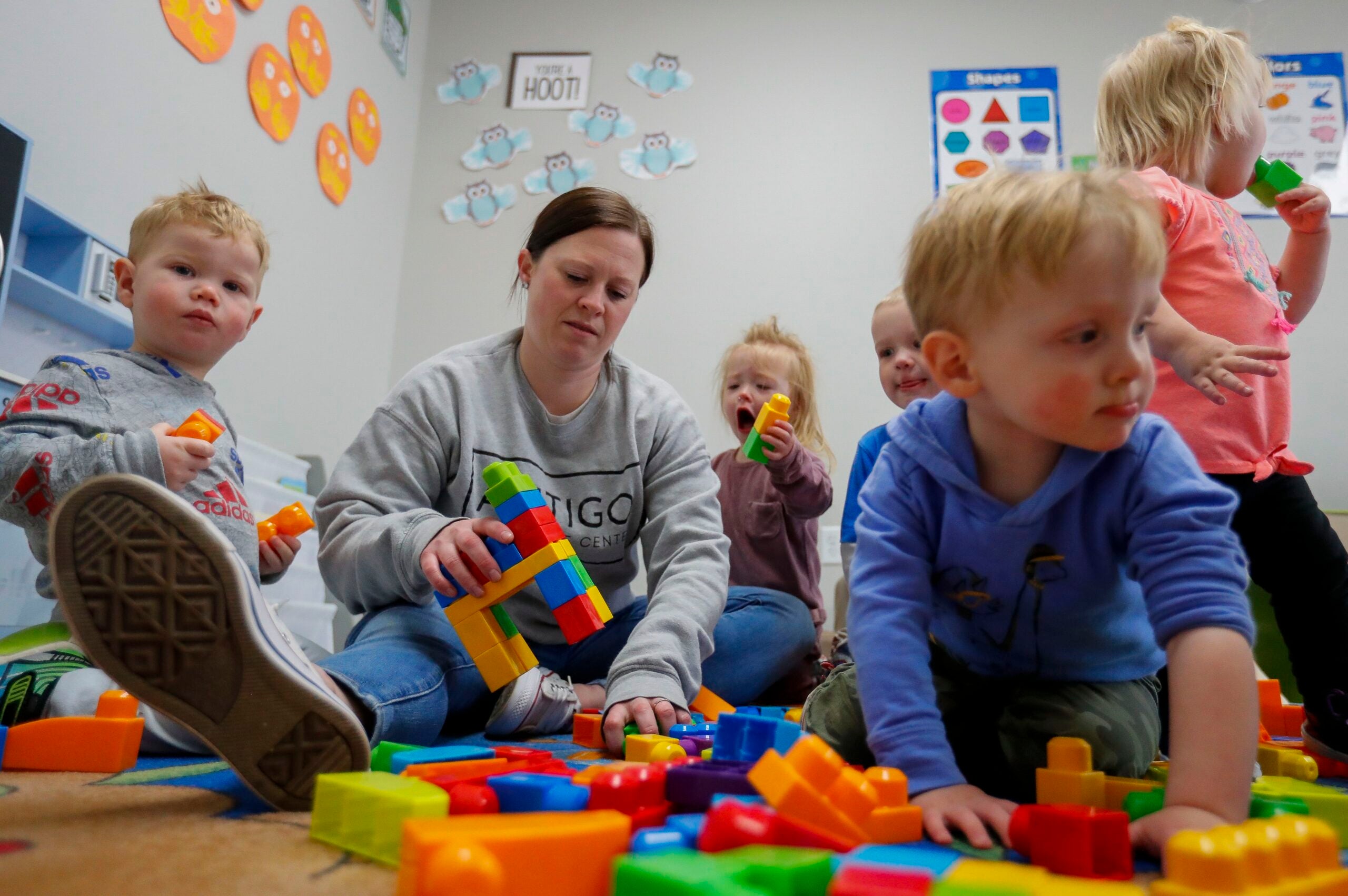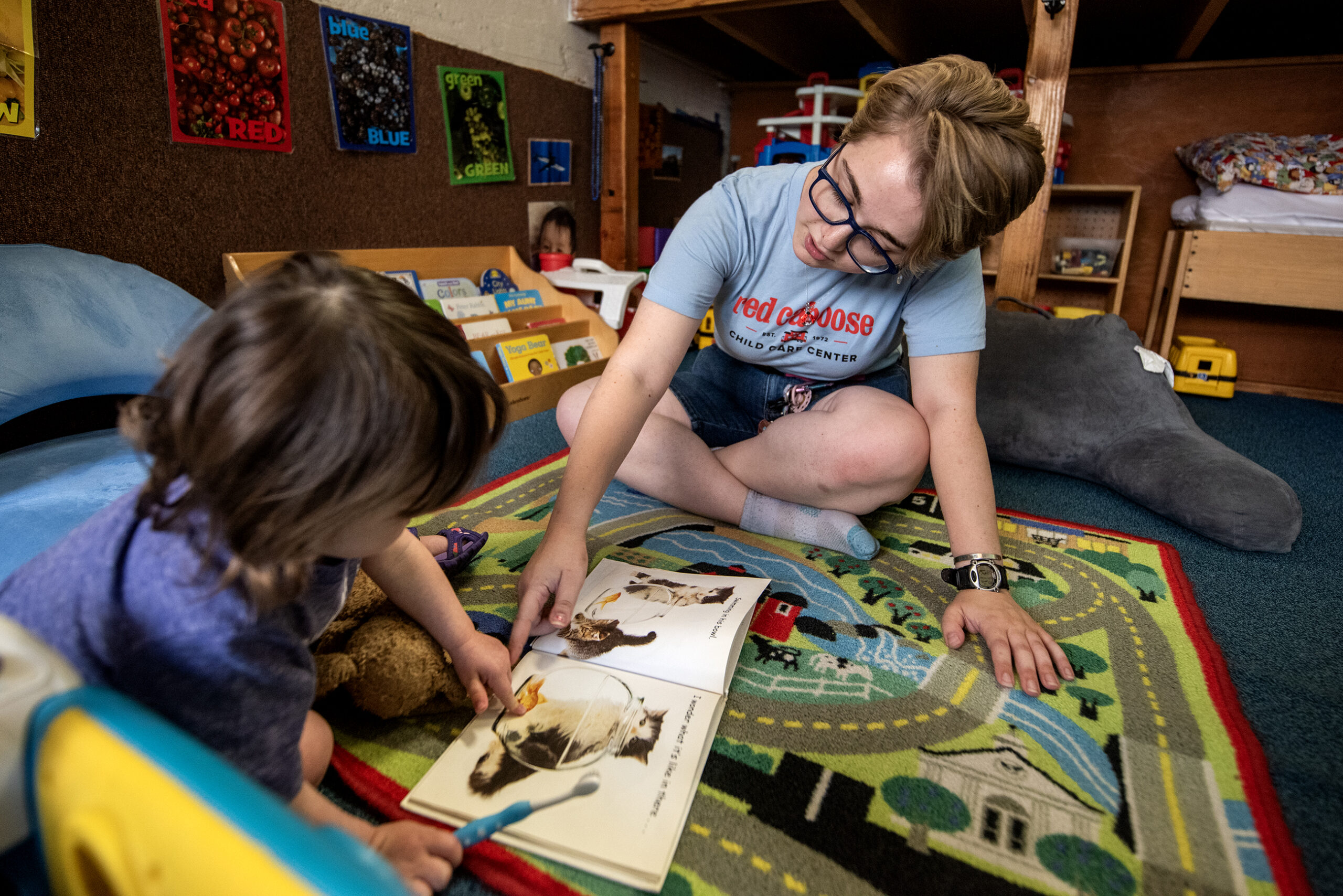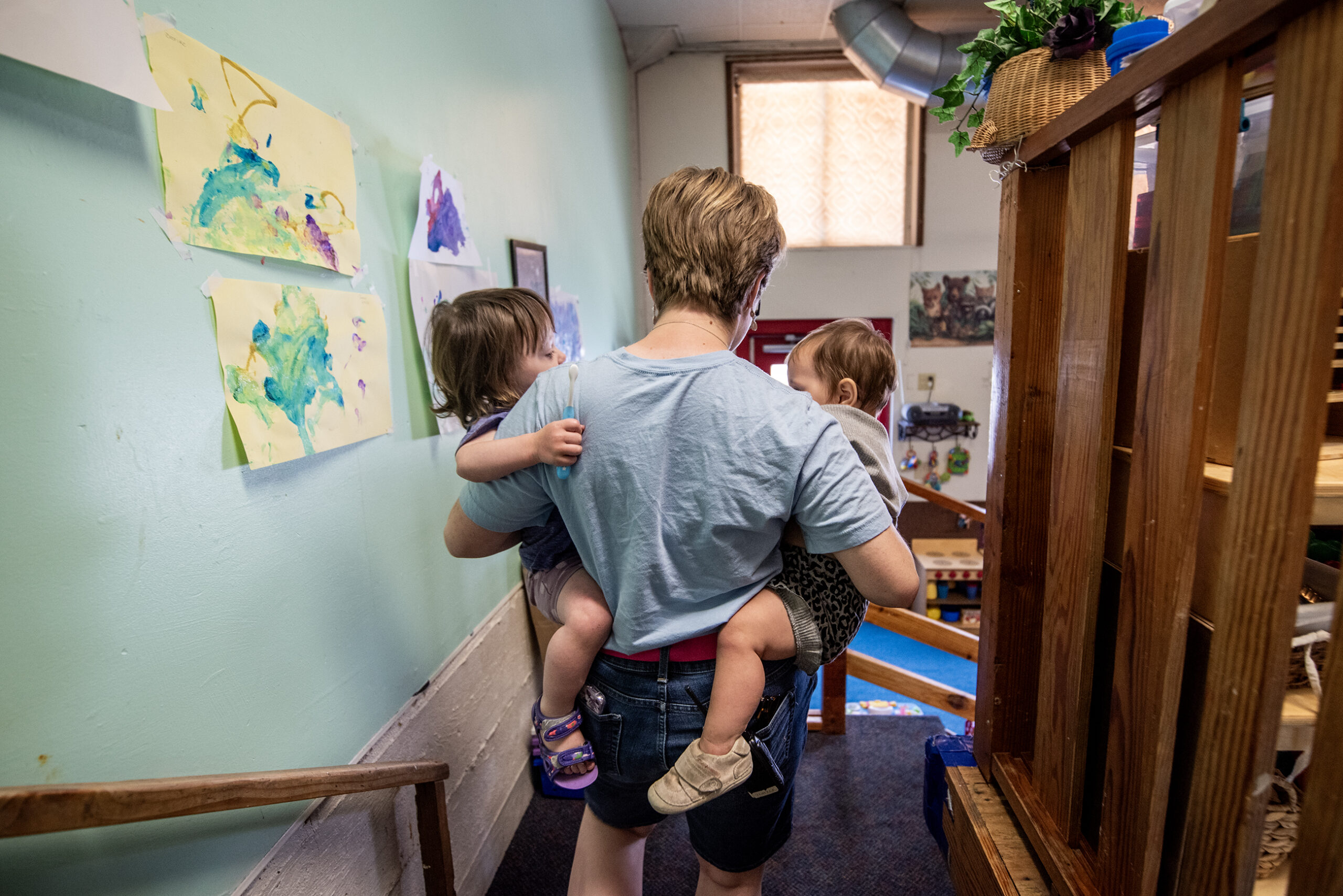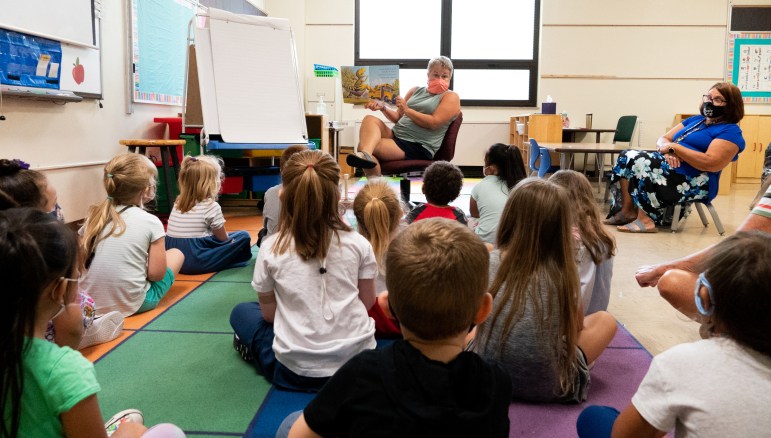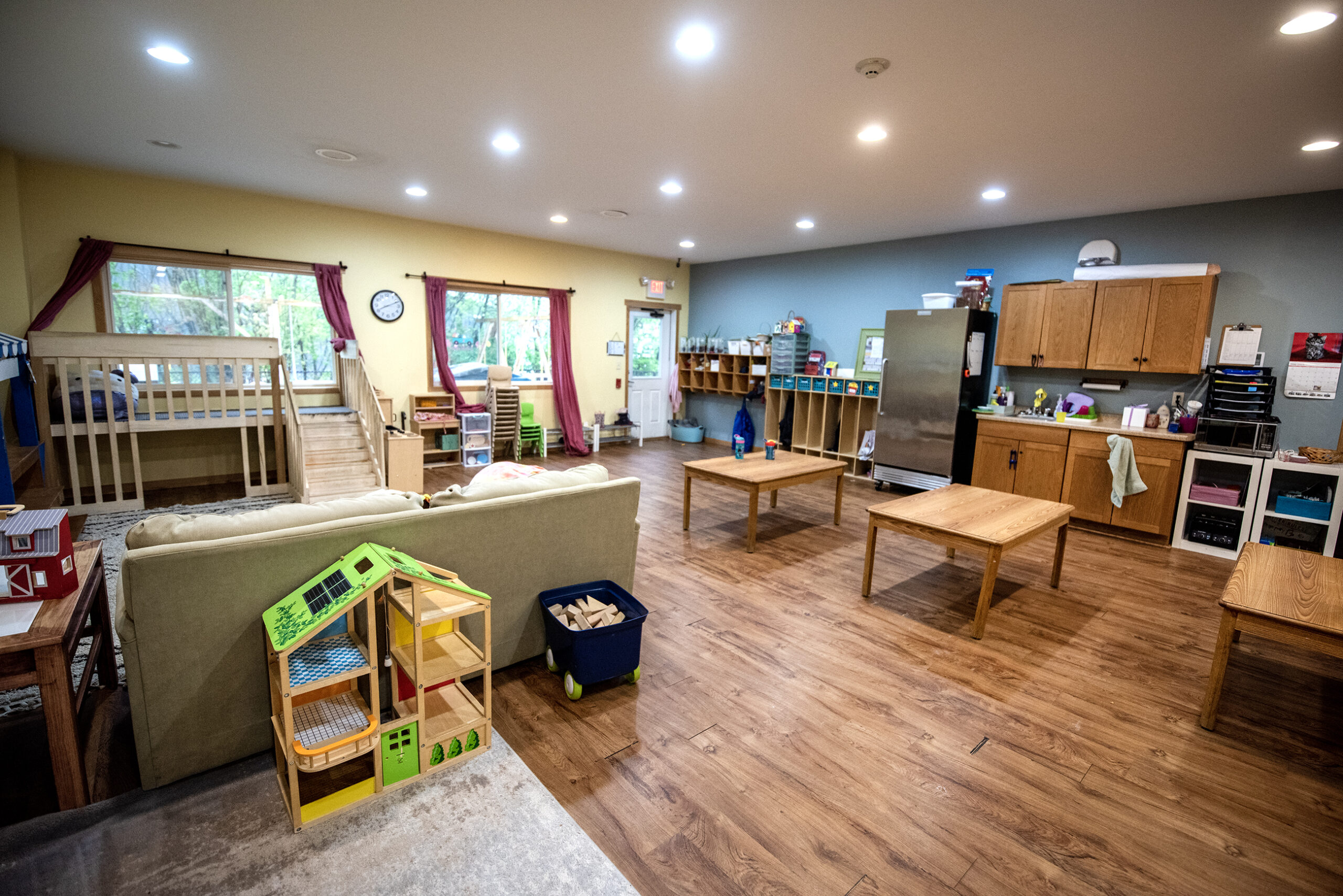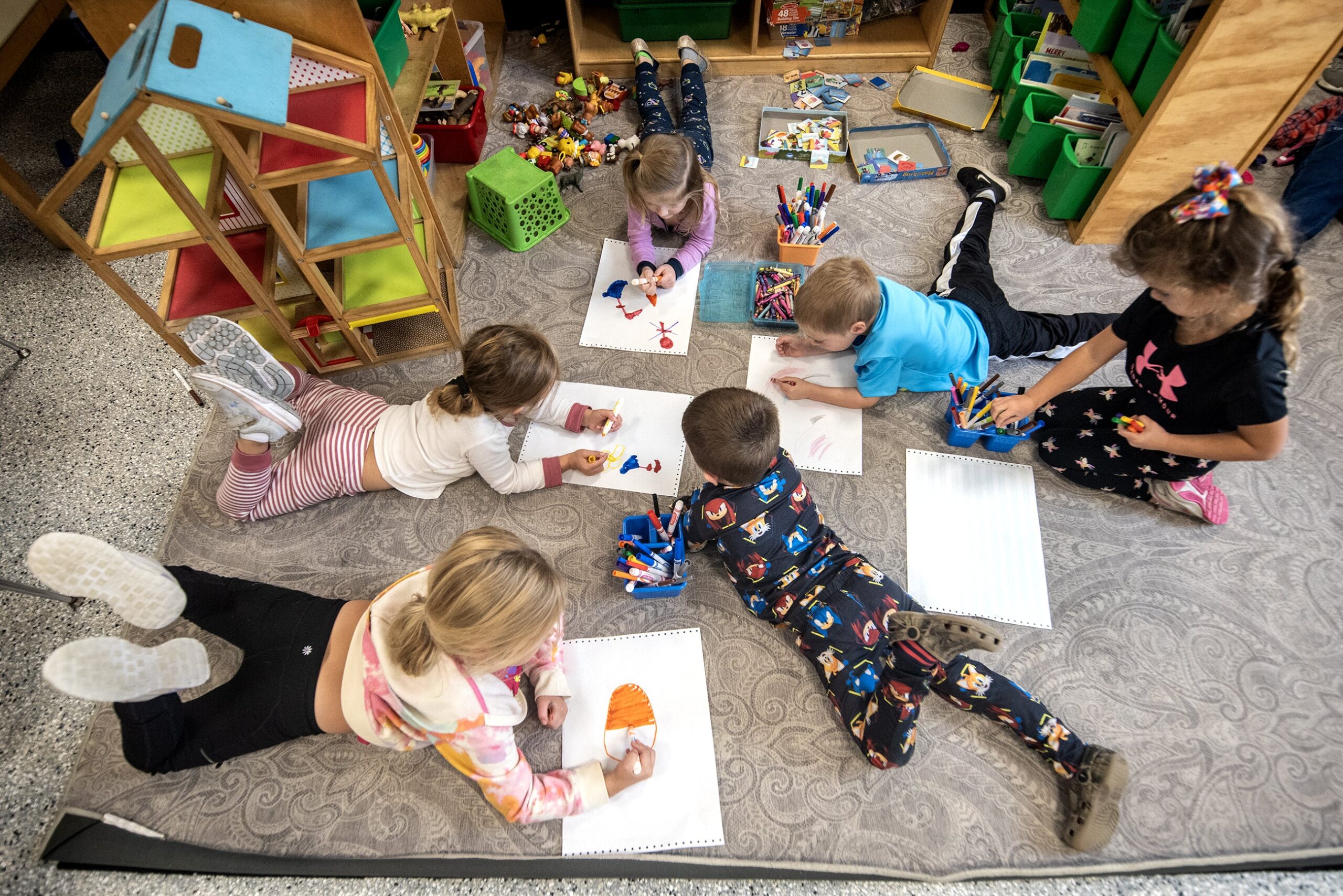The old proverb says that “it takes a village to raise a child.”
Today, it takes the whole village, city or town — employers, families and government — to raise a child care center.
Gabby Sorano needed support from all three to open the 35-slot Antigo Child Care Center last year in the city of 8,100 people 80 miles northwest of Green Bay.
Stay informed on the latest news
Sign up for WPR’s email newsletter.
Langlade County, where Antigo is located, is a child care desert: an area either without child care or where there’s fewer than one slot per three children. Langlade currently has one child care slot for every 4.3 children, the highest ratio in the 10-county north-central Wisconsin region.
Sorano was familiar with the region’s shortage after her son lost a spot during the pandemic. So when a child care center closed in Antigo, the former schoolteacher saw an opportunity to fill the gap.
To open it, Sorano overcame pretty much every symptom of the early childhood education industry’s broken business model: low teacher salaries, space needs and costly building upgrades, regulatory reviews and inspections, and sky-high tuition fees that do not cover all of a center’s operating costs.
Combined, she said, the hurdles can deter even the most passionate person from opening a center. Sorano’s idea needed a lot of community support before she could assure her family, children’s families, and the region’s employers that Antigo Child Care Center could survive long-term.
Fortunately, Langlade County was ready. According to Angie Close, executive director of the Langlade County Economic Development Corporation, it only needed Sorano.
“It definitely took collaboration and the right person. Gabby is the star,” Close said. “We were blessed to have Gabby come forward and take that leap.”
Here’s how the Antigo region rallied to support Sorano so she could open Antigo Child Care Center in July 2022.
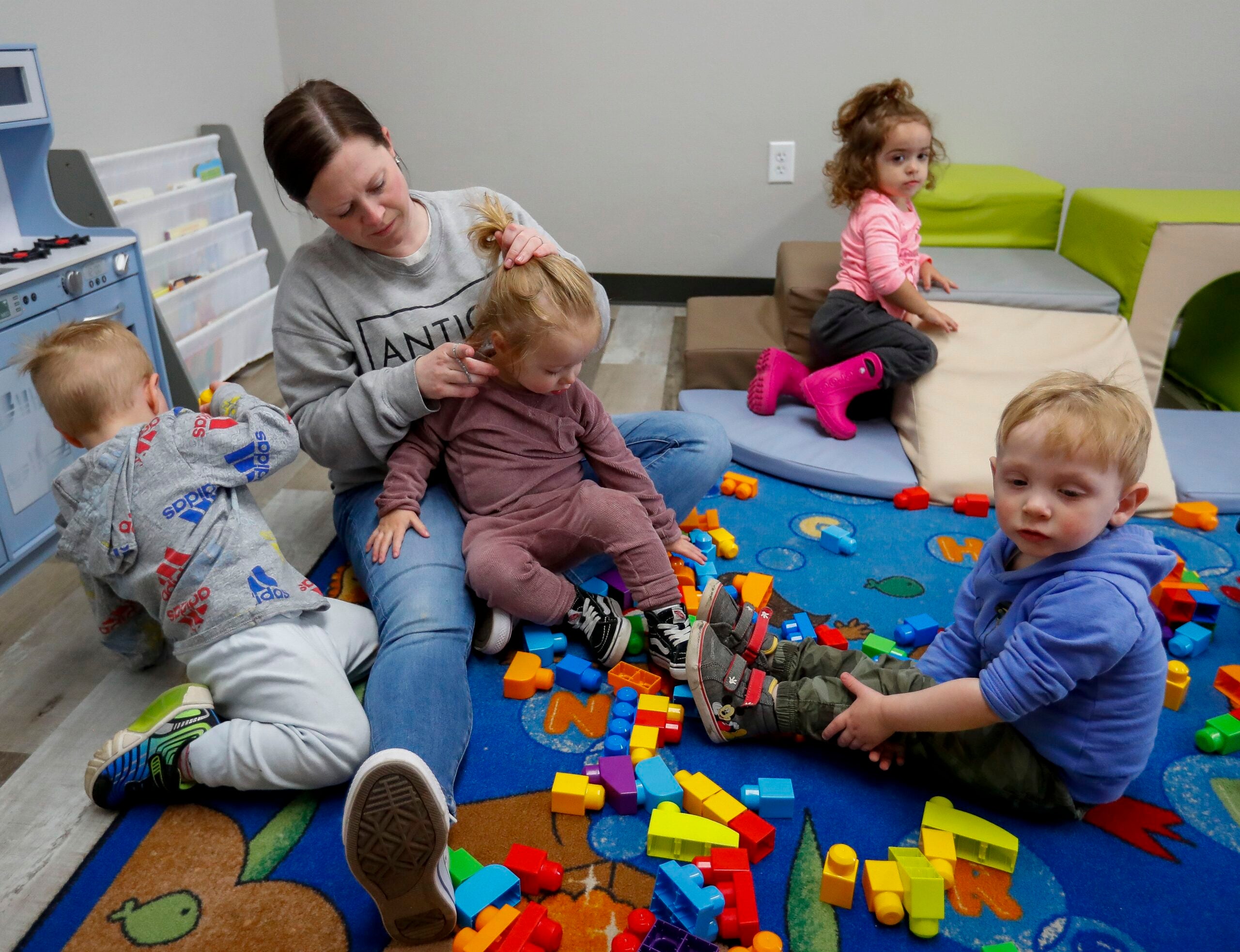
Antigo, Langlade already viewed child care as a workforce issue
Langlade County learned during the pandemic that a lack of adequate child care cost its economy about $15 million in 2019, Close said. The county formed a child care task force to foster community collaboration and to send the message that child care is a workforce issue.
“Child care is such an important part of our talent attraction piece,” Close said. “Without child care, our workforce challenges will continue to grow.”
City agencies, county agencies, state grants and Childcaring Inc., central Wisconsin’s regional child care resource and referral agency, all provided necessary time, support and funding to help Sorano overcome some early hurdles.
Sorano identified a building on Fifth Avenue, formerly used as a child care center, as a space for her new business. It turned out the building was owned by the Antigo Housing Authority, which agreed to renovate and remodel the space into classroom spaces for 35 children.
“We wouldn’t have been able to afford that starting out,” Sorano said.
Close and other city and county officials would also help Sorano apply for and secure a Main Street Bounceback Grant from the Wisconsin Economic Development Corporation to help with startup costs. The public also contributed $7,100 to a GoFundMe campaign for playground equipment.
It was not enough.
Family fees don’t cover the full cost of care
Everyone knows child care is expensive. Some might know that early childhood teachers could probably get paid more to work in a convenience store.
What much of the public doesn’t know or notice is that family fees and subsidies that help low-income families afford child care do not come close to covering a center’s entire budget.
“People don’t realize their family fees go toward so many things,” Sorano said. “There’s paying for staff, toys, food, maintenance, rent, utilities, consumable supplies and so many other things.”
This is where Sorano was stuck. Her business plan showed tuition and program grants covered only two-thirds of the center’s projected operating costs. The business plan left little room for better wages and benefits for teachers, a priority for Sorano. There was no room to raise the already-high fees families would be asked to pay.
Close said it was an eye-opening moment.
“I did not realize what the people who are taking care of your children are getting paid because that’s all the centers can afford to pay them,” Close said. “You can assume all you want, but when you get real data that show these numbers, it’s ‘Oh, my gosh.’”
Sorano, Close and others tried to think of another revenue stream Antigo Child Care Center could tap, some innovative way to plug the gap and provide the service everyone in Langlade County knew was needed.
It turned out Sorano was not the only one looking to do more about the child care challenge.

‘Getting anybody in the workforce helps the community as a whole’
The answer Sorano found was to offer local employers a tiered partnership opportunity.
Here’s how it works: Local businesses can pay Antigo Child Care Center a monthly stipend that Sorano uses to boost teacher salaries and to pay for a variety of items outlined in the partnership agreement.
In exchange, the company’s workers get priority access to six, eight or 10 slots at ACCC, depending on the partnership level, and employees receive a weekly discount on care. Two organizations have signed up: Volm Companies Inc. and the Unified School District of Antigo.
Volm, part of the Antigo business community since 1966, signed up for the six-slot tier. Linda Esker, Volm’s corporate human resources director, said it’s unclear whether the partnership directly resulted in retaining any of Volm’s roughly 550 employees. But she said Volm looked at other measures to gauge its importance and success.
“Our agreement with Gabby is really key to getting people into the workforce,” Esker said. “It could mean getting people into the workforce for Volm, which is the hope, but getting anybody in the workforce helps the community as a whole. I’m not as competitive with other employers if there are more people to draw from.”
Sorano said each partnership enables her to pay her teachers more, one of her biggest concerns about starting Antigo Child Care Center. She said she structured teacher contracts so that if partnerships are in place, teachers get paid a higher wage. She said the partnerships and the business plan are what sustains Antigo Child Care Center.
“I’m very thankful for these partnerships,” Sorano said.
The building blocks for growth
The community collaboration that helped Sorano launch Antigo Child Care Center has everyone involved thinking about what more they can do to address the region’s needs.
Volm’s operations run 24/7, but second- or third-shift child care is practically nonexistent in Antigo and many other Wisconsin cities. Additionally, Close and Sorano both noted many Langlade County residents live outside the Antigo area in smaller, rural communities that suffer from a severe shortage of child care.
“This is a great step forward, but there’s a lot more work to do,” Esker said. “Part of it is providing care on an alternate schedule. It’s a struggle.”
Sorano focused on smaller growth, first.
Antigo Child Care Center announced a summer program for school-age children, and about 40 kids have signed up so far. Sorano is also in discussions with the Antigo Housing Authority on additional building renovations that could enable it to add four more infant slots and four more toddler slots.
“Everyone coming together is going to blossom and bloom into other things,” Sorano said. “When we have the support and financial stability, I feel comfortable opening a school-age summer program or expanding to the meet the need. Without the support of the community, there’s no way I feel like someone would want to take on something else.”
This story is part of the NEW (Northeast Wisconsin) News Lab’s fourth series, “Families Matter,” covering issues important to families in the region. The lab is a local news collaboration in northeast Wisconsin made up of six news organizations: the Green Bay Press-Gazette, Appleton Post-Crescent, FoxValley365, The Press Times, Wisconsin Public Radio and Wisconsin Watch. The University of Wisconsin-Green Bay’s Journalism Department is an educational partner. Microsoft is providing financial support to the Greater Green Bay Community Foundation and Community Foundation for the Fox Valley Region to fund the initiative. The mission of the lab is to “collaborate to identify and fill information gaps to help residents explore ways to improve their communities and lives — and strengthen democracy.”
Contact Jeff Bollier at (920) 431-8387 or jbollier@gannett.com. Follow him on Twitter at @JeffBollier.
Wisconsin Public Radio, © Copyright 2025, Board of Regents of the University of Wisconsin System and Wisconsin Educational Communications Board.
